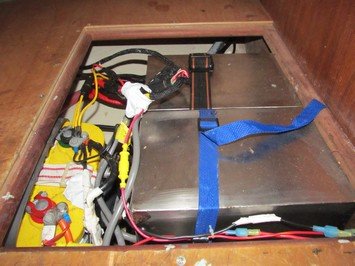Thank you Steve for a timely reminder to get it right. On purchasing my present boat 2 years ago, on checking the fire extinguishers, found they were all original, dated 1996, I am the 4th owner, how many surveys had the boat had, and no one saw they were well past there use by dates. Yes I have replaced them with new plus extras. Also no smoke or Co alarms installed, but now fitted.
I marvel that new boats are still being sold without smoke alarms, it's a mystery to me as to why anyone would take this risk.
As for fire extinguishers being out of date, I encounter it all too often. I inspected a boat a few years ago, second owner, the engine room bottle was discharged, fully, the vial was gone so it had been set off. The owner had the boat for four years, he was the second owner. The fire control panel was in override, he said it was that way when he bought the boat and he never touched it, so he bought it with an empty bottle, it had a survey, and had been worked on by who knows how many techs in that time. Sigh.
(Homeward bound from Malaysia)

